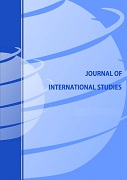HOW THE POSSIBILITY OF A FIGHT-BACK STRATEGY AFFECTS THE CONSEQUENCES OF A SANCTIONS REGIME
HOW THE POSSIBILITY OF A FIGHT-BACK STRATEGY AFFECTS THE CONSEQUENCES OF A SANCTIONS REGIME
Author(s): Mohammad Sadegh Karimi, Abbas Maleki, Asieh Haieri YazdiSubject(s): Economic policy, International relations/trade
Published by: Fundacja Centrum Badań Socjologicznych
Keywords: sanctions; game theory; fight-back strategy; rival country; Iran sanctions;
Summary/Abstract: Sanctions imposed by a country against another country are considered as a foreign policy tool. Many studies have investigated different aspects of sanctions including the efficacy of sanctions to alter the target country’s behaviour. However, the effects of a potential fight-back strategy adopted by a target country have been discussed rarely. In this paper, the outcomes of a possible fight-back strategy are simulated using game theoretical analysis. To find the matching state of game theory and sanction regimes, we have conducted a critical and systematic review of 12 sanctions, from 1950 to 2012. The results show that the capability of a target country to implement fight-back strategies provides the opportunity to change the sender’s expected outcomes. It also makes the occurrence of future sanctions less probable or even less feasible.
Journal: Journal of International Studies
- Issue Year: 13/2020
- Issue No: 3
- Page Range: 264-279
- Page Count: 16
- Language: English

